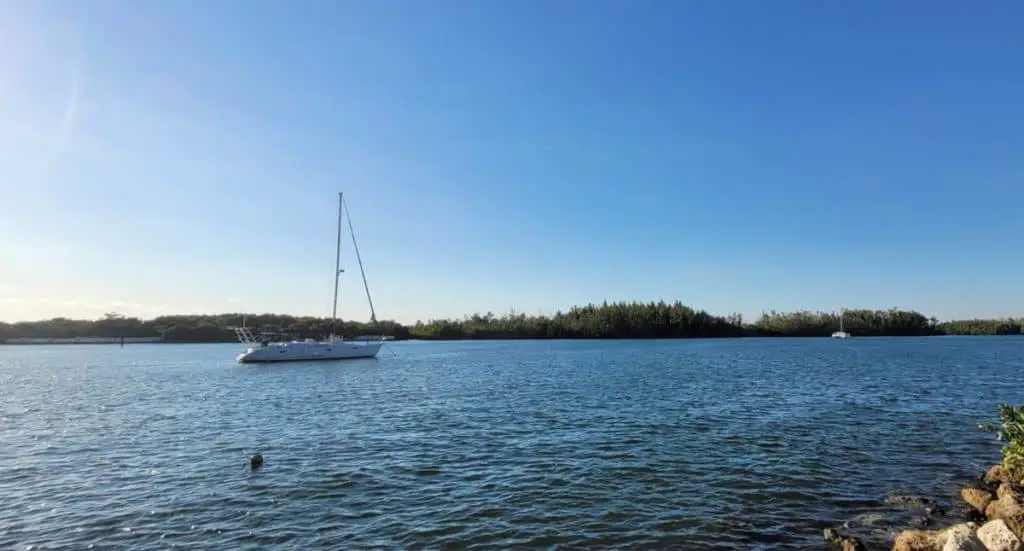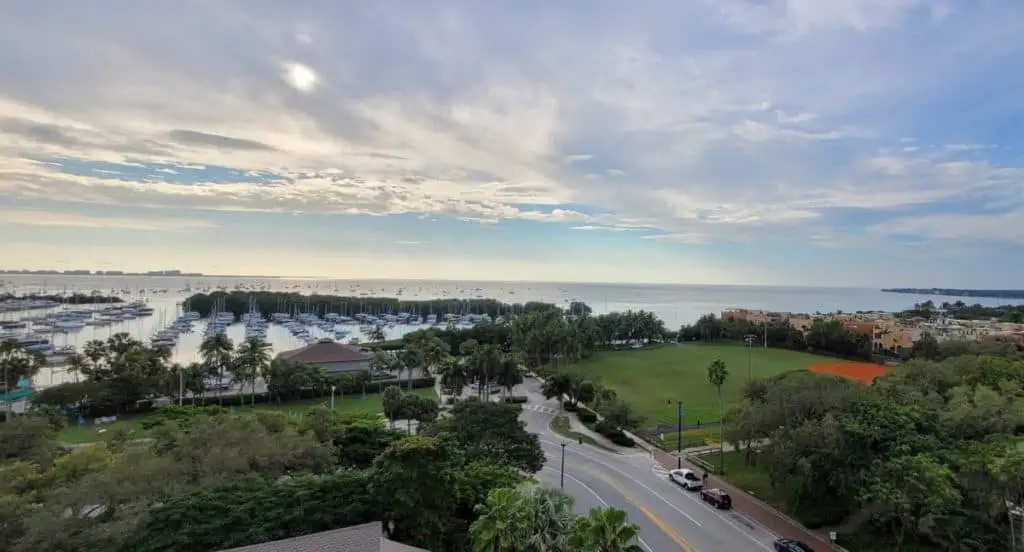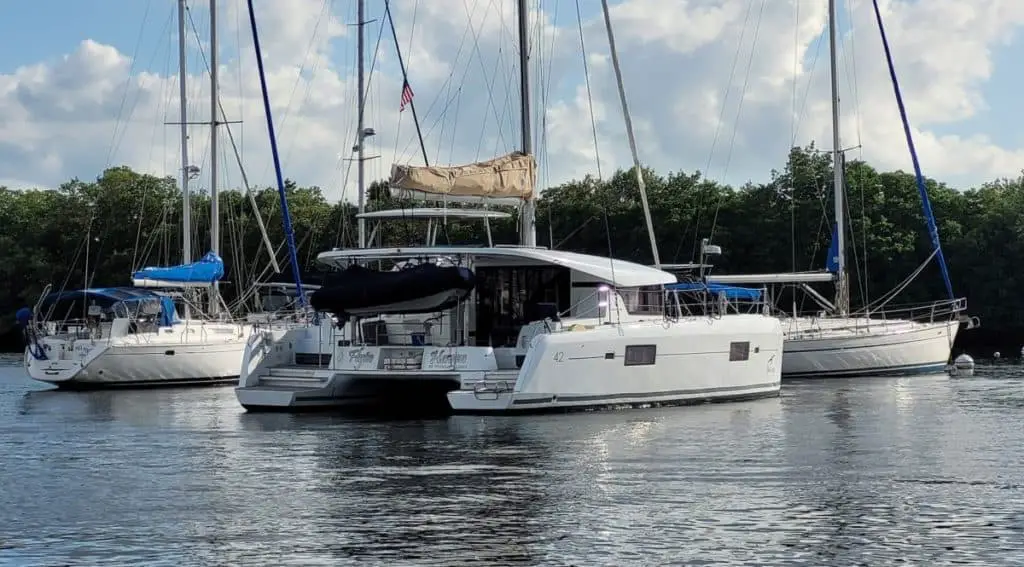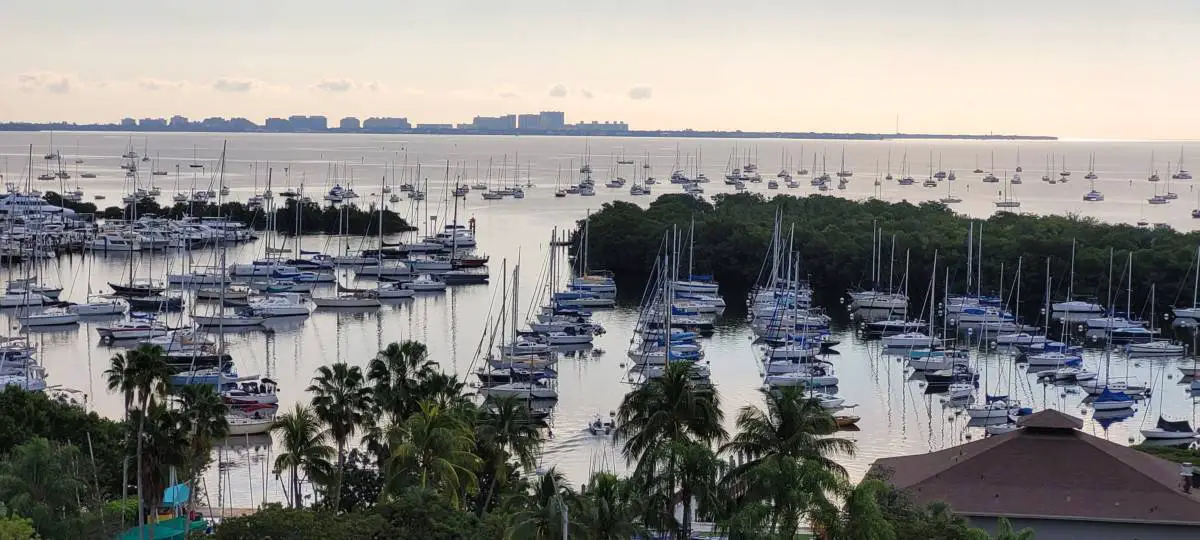As an Amazon Associate, we earn from qualifying purchases. We may also earn commissions if you purchase products from other retailers after clicking on a link from our site.
Being lulled to sleep by the gentle waves of the ocean and waking up to the sound of seagulls and other marine wildlife is a very romantic and attractive idea. This type of fantasy leads many people to look for, or at least consider, a life on a boat, away from the land. This may be especially true if you’re already in love with the climate and water of Florida.
You can live on a boat in Florida, and you can do this safely and legally. However, there are laws that govern this kind of lifestyle, and you should be well-acquainted with them before choosing to move to a boat. If you follow the laws, you’ll be able to live on a boat very easily.
So, let’s get into the costs, legality, and some popular types of liveaboards to help you see for yourself if you can afford the lifestyle and if it’s the right choice for you. If done right, living on a boat can be a wonderful experience and a great way to get away from the hustle and bustle of the city. Let’s dive into it!
If you’re interested, I can also suggest 11 incredible locations around the world that are perfect for liveaboard enthusiasts to explore.
What Is Considered a Liveaboard in Florida?

A liveaboard is a vessel that serves as a person’s primary residence. In other words, it’s a vessel that a person uses primarily as their house. This does not mean that you’re not permitted to use the vessel for anything else; you’re permitted to use it for recreational purposes as well.
Therefore, a boat you use, let’s say, for fishing and sometimes sleep on, is not a liveaboard. But if you live on it and occasionally go for a sail, it is a liveaboard.
If you’re still unsure about what type of boat would be the best fit for liveaboard purposes, I can provide you with valuable insights on the topic through my article.
The Cost of Living on a Boat in Florida

Just like with every major life decision, budgeting is the primary task you have to complete before moving on to fulfilling your wishes. We have to take a look at and analyze some key elements.
There are two basic costs you have to pay attention to:
- A marina slip
- The boat
A marina slip or a boat slip is like a parking space for your boat, that is, the place where your boat will be anchored. A monthly slip for a 40-foot (12-meter) boat can cost between $800 and $2000, depending on the location.
The price of the slip depends on the location – the more popular your area is, the more it’s going to cost.
Another critical factor is how long you’re going to stay. If you can commit for a more extended period, you’ll pay less. If you can commit for an entire year, the price may go from $11 per foot (per 0.3 meters) per month. You might negotiate an even better deal if you stay longer.
The prices of boats vary widely based on the size of the vessel and its type. You can count on spending at least $30,000 on a smaller boat, and it’s safe to say that there’s no upper limit to the price. Keep in mind that bigger boats need more space. Therefore, the slips for them are more expensive.
Apart from those basic costs, you’ll also need to take into account taxes, fuel, maintenance, insurance, and so on. These costs are highly variable, so it’s hard to give an exact number.
Taxes can be the most expensive cost when it comes to these costs. Florida has a sales and use tax of 6% of the boat’s value. You’ll need to take that into consideration.

Are Houseboats Legal in Florida?
Houseboats are legal in Florida. It’s essential to understand the laws concerning houseboats, such as installing a proper toilet, and mooring outside prohibited areas.
One of the laws that you have to follow states that your houseboat, just like any vessel, has to have a proper toilet installed, which means that you’re not allowed to drain your sewage into the water.
However, there have recently been some problems when it comes to anchoring in Florida. Many cities have been trying to limit the time you can remain anchored, which may complicate your living situation. This has raised the concern of many houseboat owners.
You’ll need to check with your local authorities to know if and how long you’re allowed to anchor and what rules you have to adhere to. Some places may allow you to anchor your houseboat there, while some may not.
Of course, you’ll also have to respect regular safety practices and not operate your houseboat under the influence.
When are Houseboats Allowed and When are They Not?
Houseboats are not legally allowed to be in a navigable waterway, channel, or mooring field. You’re also not allowed to stay in a protected area, and you can pay if you do so. However, as long as you’re in a designated liveaboard area and follow the rules, living on a boat in Florida is legal.
It’s best to check if a marina you’re interested in allows liveaboards. Some don’t, so you can’t just drop an anchor everywhere.
In some places, there is a new law that you’re also required to pay a $5 permit and to pump your sewage at a designated area.
Conclusion
Living on a boat in Florida is legal and possible. If you can afford it, and if such a lifestyle attracts you, you can start with the preparations.
You have to budget for the marine slip and the boat, as well as taxes and the cost of maintenance. You’ll have to decide if the expenses are worth it for you. In some cases, living on land may be cheaper, albeit less romantic.
Local regulations and laws have to be observed, as well as the rules enforced by marinas. Be sure to check everything with the local authorities.
Sources
- My Florida Legal: Advisory Legal Opinion – AGO 85-45
- Freedom Residence: Can You Live on a Boat in Florida?
- The CE Shop: Boat Living: An Affordable Alternative for Florida Locals?
- Knoxville Barge, Inc: Difference Between a Boat Slip & Boat Dock
- Boat Tax: Florida Boat Tax – Major July 1, 2010 Change
- Bay News9: Madeira Beach Passes New Law Restricting Live-Aboard Boats
- Crow Survival: Are Houseboats Legal in Florida?
- The Florida Guidebook: Florida Anchoring Laws

